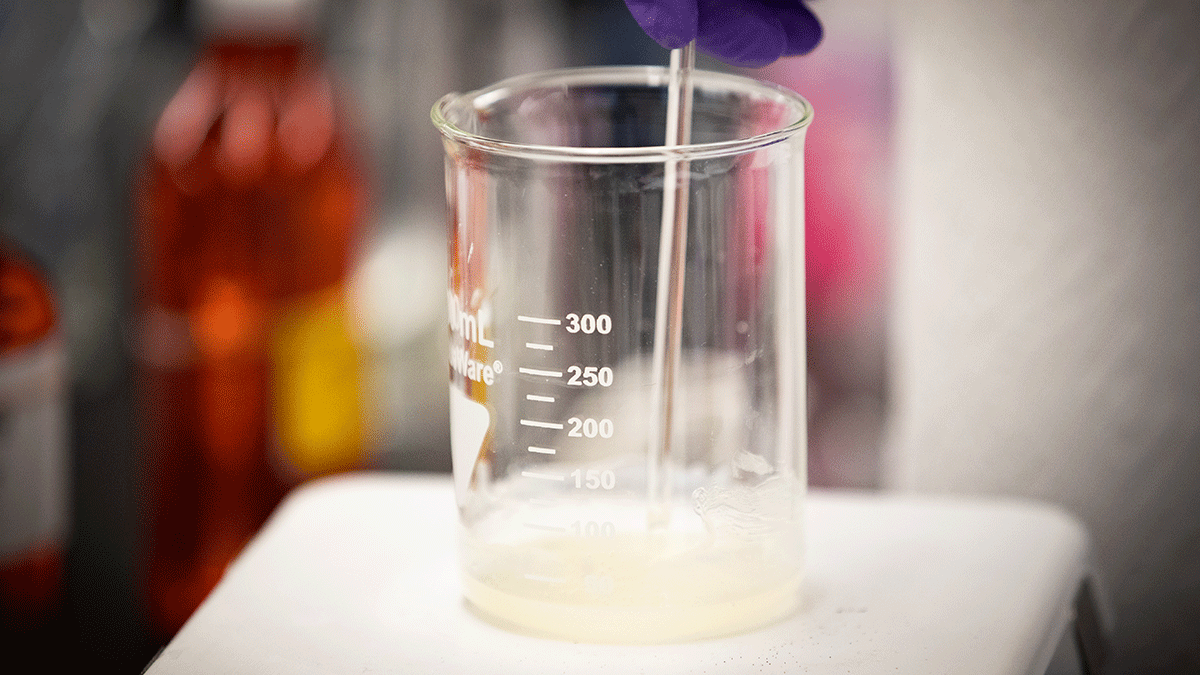All pharmaceutical ingredients are not equal in cooking up chemical reactions.
Many active pharmaceutical ingredients (APIs) don’t dissolve well.
This makes it difficult for patients to absorb certain drugs – making the drugs less effective.
A substance called an excipient can help APIs dissolve in medication.
In her thesis, chemistry graduate student Jessica Bruer explores how temperature influences one excipient’s ability to dissolve APIs.
About her thesis
Excipients form small sources of matter called nanoparticles.
The nanoparticles help APIs dissolve by carrying them to target sites in the body.
Temperature affects nanoparticles’ size, thickness and flexibility, Bruer explains.
She researched how temperature changes also changed excipients’ traits and ability to absorb.
“Studying how temperature affects particles’ size, thickness and flexibility reveals how they will behave once subjected to body temperature,” Bruer said.
Bruer completed her studies under the guidance of her advisor, Dr. G. Alan Schick.
Understanding the importance
Bruer’s research can apply to many areas, including skin if used for so called smart creams.
“Her studies could help researchers develop new medicated topical cream and gel formulations for better drug delivery strategies,” Schick said.
Excipients that can target multiple issues in the body are even more valuable to the pharmaceutical industry.
“The findings could impact pharmaceuticals by benefiting the APIs used in the treatments of acne, arthritis and general pain management,” Schick said.
Entering the industry
Following graduation, Bruer will work as an application technologist at Sensient Technologies Corporation located in St. Louis.
The corporation uses advanced technologies to develop pharmaceutical excipients among other products.
Bruer interned for Sensient Technologies Corporation twice before accepting the position.
“The chemistry department at Missouri State prepared me well for the position,” Bruer said. “Using the instruments of the industry in lab courses provided me with the knowledge base I needed.”

